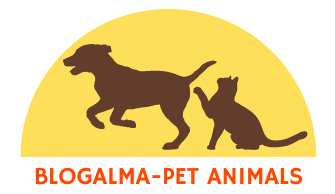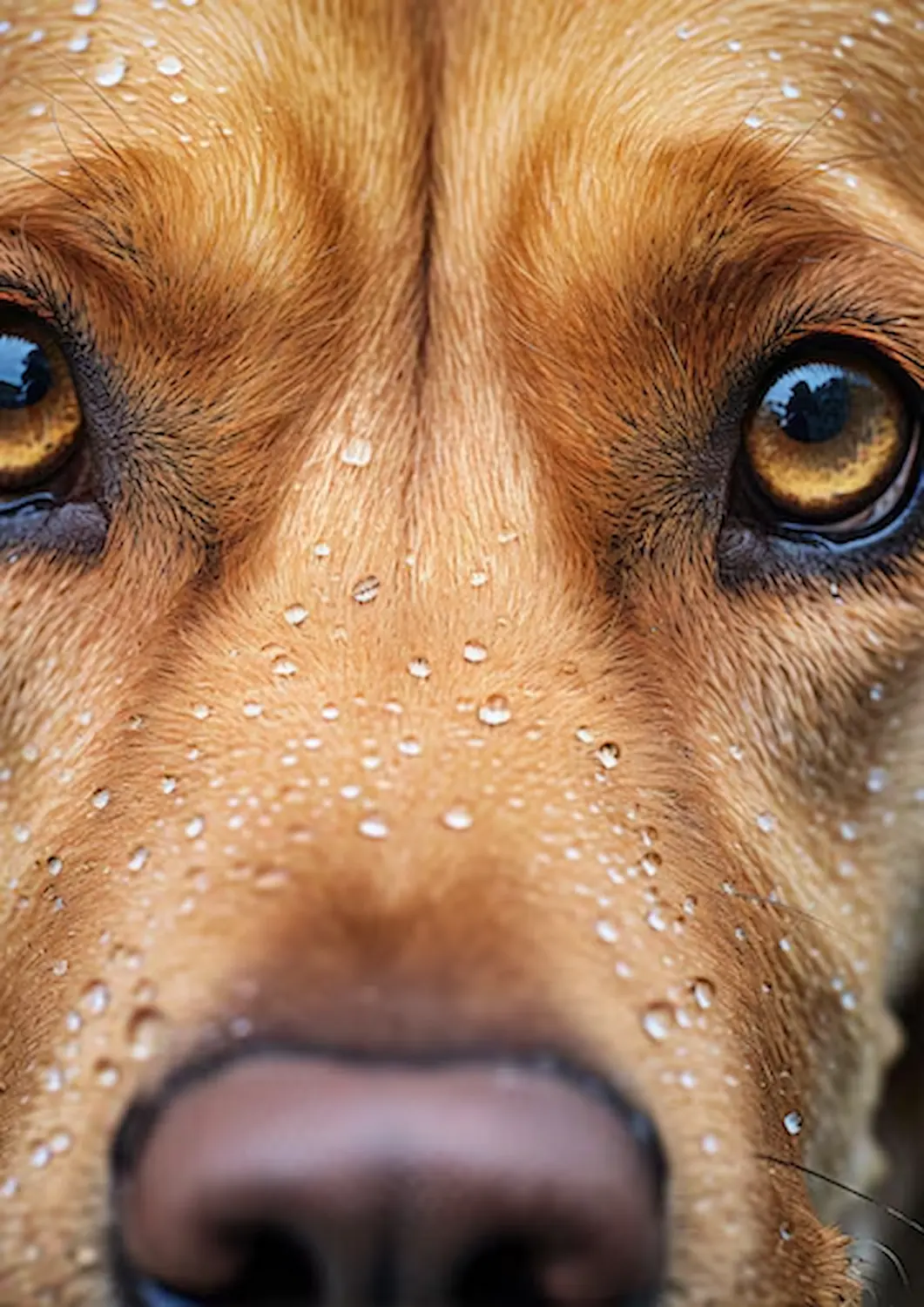1. Introduction
A dog’s nose can be one of the best indicators of their overall health, but when you notice your pup’s nose becoming dry, it’s natural to feel concerned.
But is it really a reason to worry? In this article, we’ll explore everything you need to know about a dry dog nose—what it means when it’s normal, and when you should seek help.
2. Common Causes of a Dry Dog Nose

A dry nose doesn’t always signal something serious. There are several common, everyday factors that could contribute to your dog’s nose feeling less wet than usual.
Environmental Factors
Sometimes, the environment your dog is in can cause their nose to dry out. Exposure to heat, cold, or even indoor heating during winter months can sap moisture from their nose.
Sun Exposure
Just like our skin, your dog’s nose can become dry and even sunburned when exposed to the sun for long periods. Breeds with lighter-colored noses or thin coats may be particularly vulnerable to this.
Allergies
Allergies—both environmental and food-related—can cause your dog’s nose to become dry, irritated, and inflamed.
Dehydration
Dehydration can quickly lead to a dry nose. If your dog isn’t getting enough water, their body will prioritize keeping vital organs hydrated over less critical areas like the skin and nose.
Related: Kennel Nose in Dogs: How to Treat It at Home (2024 Guide)
3. When a Dry Dog Nose Is Normal

Before you panic, it’s important to know that a dry nose isn’t always something to worry about. In many cases, it’s perfectly normal for your dog’s nose to lose some of its moisture.
Seasonal Changes
Just like our skin gets dry in colder months, your dog’s nose may become drier in winter, particularly in heated homes where moisture levels are lower.
After Sleep
It’s very common for a dog’s nose to be dry after sleeping. When they sleep, they aren’t licking their noses to keep them moist, so they dry out temporarily.
Breed-Specific Traits
Some breeds naturally have drier noses. Brachycephalic breeds like Bulldogs and Pugs often have difficulty keeping their noses moist due to the shape of their snouts.
4. Signs of an Abnormal Dry Nose
Sometimes, a dry nose can indicate an underlying problem. It’s important to know the signs of when a dry nose might be more than just a seasonal issue.
Cracking and Bleeding
If your dog’s nose is so dry that it’s cracking and bleeding, this is a clear sign of a problem. Severe dryness may require immediate medical attention.
Flaky Skin
Flaking or peeling skin on your dog’s nose could be a sign of a more serious issue, like hyperkeratosis or an allergic reaction.
Accompanying Symptoms
Look for other symptoms that accompany a dry nose, such as lethargy, loss of appetite, or changes in behavior. These could signal a more serious health issue.
Related: Why Are Dog Noses Wet or Dry? What It Means
5. Medical Conditions Linked to a Dry Nose

Some medical conditions can cause a persistently dry nose. While many are treatable, they do require veterinary attention.
Autoimmune Diseases
Autoimmune diseases, like lupus or pemphigus, can cause the immune system to attack the skin on the nose, leading to dryness and other symptoms.
Hyperkeratosis
Hyperkeratosis is a condition where the skin on a dog’s nose thickens excessively, leading to cracking and a rough texture. This can be caused by age, genetics, or underlying health conditions.
Nasal Infections
Bacterial or fungal infections in the nasal area can cause your dog’s nose to become dry, swollen, or even develop sores.
6. How to Treat a Dry Dog Nose
Fortunately, a dry nose can often be treated at home with simple remedies or, in more serious cases, under the guidance of a veterinarian.
Home Remedies
There are many home remedies you can try, such as applying a thin layer of coconut oil, olive oil, or petroleum jelly to your dog’s nose to help lock in moisture.
Hydration and Nutrition
Ensuring your dog is properly hydrated and receiving all the necessary nutrients can go a long way in maintaining nose health. Foods rich in omega fatty acids can support skin and nose hydration.
Medical Treatments
If home remedies don’t work, a veterinarian can recommend topical treatments or ointments that can help heal a dry nose, particularly if there’s an underlying condition involved.
7. The Role of Nutrition in Nose Health
What your dog eats can directly affect the health of their skin and nose. A balanced diet that provides essential nutrients will support their overall well-being.
Essential Nutrients for Skin Health
Omega-3 and omega-6 fatty acids, found in fish oil and flaxseed, play a key role in keeping your dog’s skin and nose moisturized. These fats help maintain the lipid barrier that keeps moisture in and irritants out.
Foods that Promote Hydration
Some foods, like cucumbers and watermelon, have high water content and can support hydration, which indirectly benefits nose health.
8. When to Seek Veterinary Help
Not every dry nose requires a trip to the vet, but there are certain warning signs that shouldn’t be ignored.
Warning Signs
If your dog’s nose becomes persistently dry, cracks bleeds, or shows signs of infection, it’s time to seek professional help. These could indicate a more serious underlying issue.
Diagnostic Tests
Your vet may conduct tests to diagnose the cause of your dog’s dry nose, including blood tests, skin scrapings, or allergy tests.
Treatment Plans
Depending on the diagnosis, treatment plans could range from medicated creams to more intensive therapies for conditions like autoimmune diseases or infections.
9. Preventing a Dry Dog Nose
Prevention is often the best medicine, and there are several ways you can prevent your dog’s nose from becoming dry.
Regular Grooming
Regular grooming not only helps maintain a healthy coat but can also prevent debris from building up around the nose, which can contribute to dryness.
Sun Protection
If your dog spends a lot of time outdoors, particularly in sunny climates, you can use dog-safe sunscreen to prevent the nose from becoming sunburned and dry.
Proper Hydration
Ensuring your dog has access to fresh water at all times is key to preventing dehydration, which is a common cause of dry noses.
10. How Climate and Weather Affect a Dog’s Nose
Just like people, dogs are affected by their environment. Climate and weather conditions can have a significant impact on your dog’s nose.
Dry and Cold Climates
In dry and cold climates, the lack of humidity can cause your dog’s nose to dry out more quickly. If you live in such an environment, keeping your home humidified can help.
Humidity Levels
High humidity, on the other hand, generally helps keep a dog’s nose moist. However, it’s important to find a balance, as too much humidity can lead to mold growth, which may trigger allergies.
11. Myths About Dry Dog Noses
There are plenty of myths out there about what a dry nose means for a dog, but not all of them are true.
Is a Dry Nose Always a Sign of Illness?
Contrary to popular belief, a dry nose is not always a sign that your dog is sick. Sometimes it’s just a result of their environment, sleep patterns, or breed.
The Wet Nose Myth
A constantly wet nose doesn’t necessarily mean a dog is healthy, either. A wet nose can indicate good hydration, but other factors also contribute to a dog’s overall health.
12. Breed-Specific Tendencies for Dry Noses
Some breeds are more prone to having dry noses than others. Knowing your dog’s breed tendencies can help you manage and prevent dryness.
Brachycephalic Breeds
Dogs with short snouts, like Bulldogs and Pugs, often have difficulty keeping their noses moist because they can’t reach their noses as easily to lick them.
Small Breeds vs. Large Breeds
While size isn’t always a direct factor, smaller breeds may be more prone to dry noses due to their sensitivity to environmental changes, while larger breeds may face issues due to outdoor exposure.
13. The Connection Between Allergies and a Dry Nose
Allergies are a common culprit when it comes to dry noses. Whether environmental or food-related, they can lead to dryness, inflammation, and discomfort.
Environmental Allergens
Pollen, dust, mold, and other airborne allergens can irritate your dog’s nose, causing it to dry out and become inflamed.
Food Allergies
Certain ingredients in dog food, particularly common allergens like wheat, soy, and dairy, can trigger allergic reactions that may lead to a dry, itchy nose.
14. Using Balms and Moisturizers for Dry Noses
Balms and moisturizers specifically designed for dogs can be a lifesaver for dogs with chronically dry noses.
Safe Ingredients
Look for balms made from natural, dog-safe ingredients like shea butter, coconut oil, and beeswax. Avoid any products with artificial scents, dyes, or chemicals that could irritate your dog’s skin.
Application Tips
Apply a small amount of balm to your dog’s nose, gently massaging it in. Make sure they don’t lick it off immediately after application to ensure it has time to absorb.
15. Understanding Your Dog’s Nose Health Overall
The condition of your dog’s nose is a window into their overall health. Regularly checking and maintaining nose health should be part of your dog’s grooming routine.
Routine Care
Incorporating nose care into your dog’s routine can help catch potential issues early on. Clean their nose gently if it becomes dirty and monitor for any changes in texture or moisture.
The Nose as a Health Indicator
Your dog’s nose can tell you a lot about their health. While a dry nose isn’t always a red flag, it’s still important to be aware of any significant changes.
16. Conclusion
Your dog’s nose plays an essential role in their health and well-being, and while a dry nose can sometimes be a sign of a problem, it’s often nothing to worry about. Knowing the common causes, when it’s normal, and how to treat or prevent dryness can help you keep your pup happy and healthy. Always pay attention to the overall health of your dog and consult your vet if you notice any worrisome changes.
FAQs
1. Why does my dog’s nose get dry after sleeping?
It’s common for dogs to wake up with a dry nose since they aren’t licking their nose while they sleep, which keeps it moist.
2. How can I tell if my dog’s dry nose is serious?
Look for other signs such as cracking, bleeding, or accompanying symptoms like lethargy or loss of appetite. If you notice these, consult a vet.
3. Can I use a human moisturizer on my dog’s nose?
No, human moisturizers can contain ingredients that are harmful to dogs. Use dog-specific balms instead.
4. What breeds are more prone to dry noses?
Brachycephalic breeds, like Bulldogs and Pugs, are more likely to have dry noses due to the shape of their snouts.
5. Can a dry nose cause pain for my dog?
In severe cases where the nose is cracked or bleeding, it can be uncomfortable or even painful for your dog.
6. Is there a link between a dry nose and dehydration?
Yes, dehydration is a common cause of a dry nose. Make sure your dog is drinking enough water throughout the day.
7. How can I prevent my dog’s nose from getting dry in the winter?
Keep your home humidified and apply a dog-safe balm to your dog’s nose to help lock in moisture during the dry winter months.

